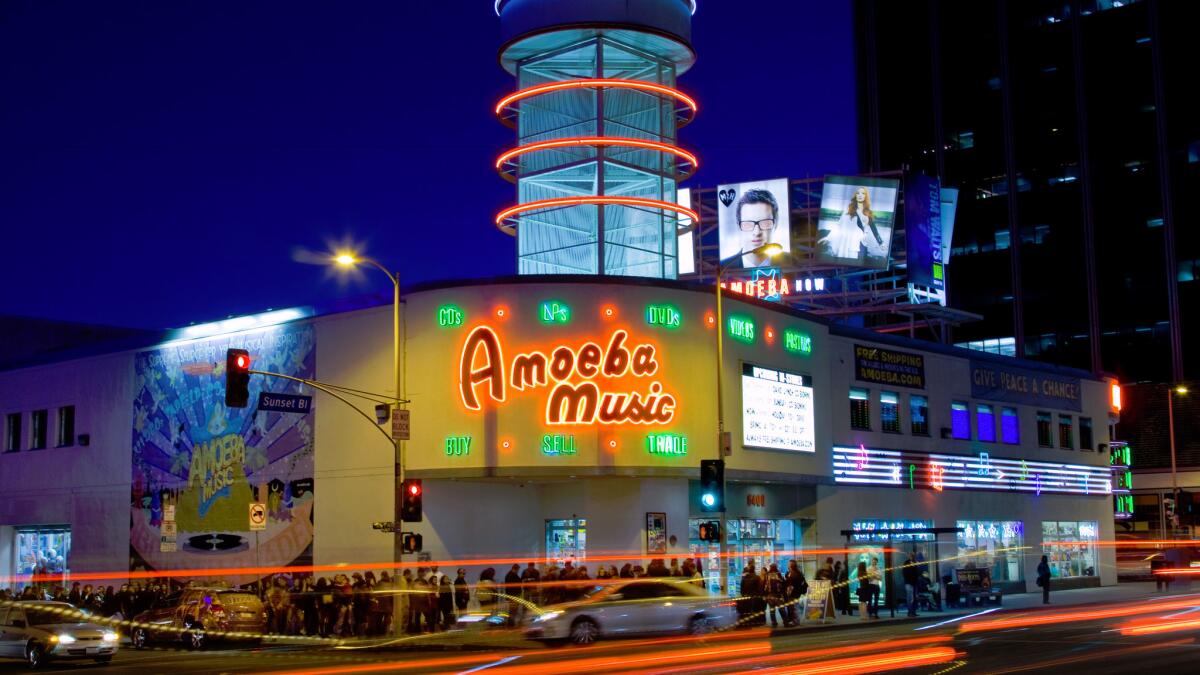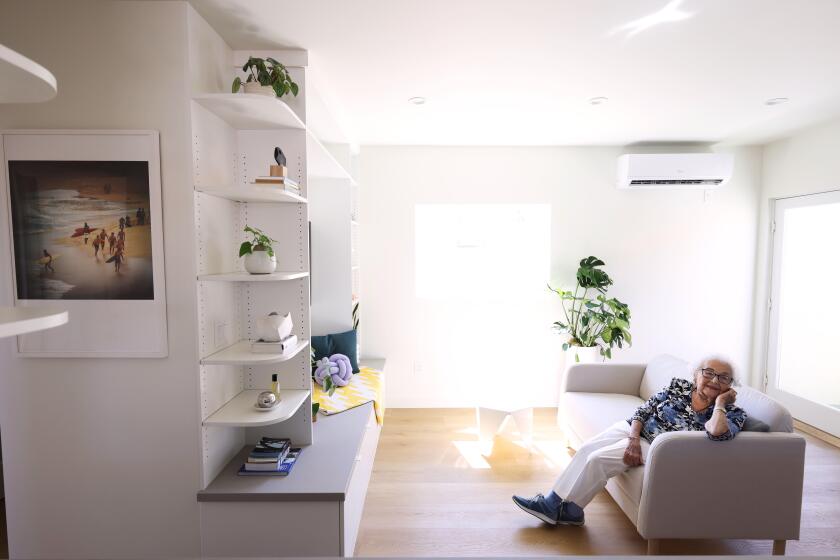Critics sue to stop Hollywood project that would displace Amoeba Music

Weeks after Los Angeles officials gave the green light for a new development on the Hollywood site now occupied by Amoeba Music, critics are suing the city to stop it, arguing that it would tear down a “cultural resource” that deserves protection.
AIDS Healthcare Foundation and the Coalition to Preserve L.A., a group funded by the foundation that is critical of how the city handles planning and development, are also pushing the city to enshrine the distinctive murals and neon art at the Sunset Boulevard site as part of a historic monument.
Doing so would make it harder to tear down the building, which boasts a Space Age neon turret, an old-fashioned marquee, and murals inside and outside the structure.
L.A. “is giving short shrift to the historic significance of Amoeba by completely ignoring the rich and lengthy cultural history associated with this iconic corner of Hollywood,” AIDS Healthcare Foundation President Michael Weinstein said in a statement Wednesday.
The Sunset Boulevard site is not very old — it was built around the turn of the millennium — but the groups stated in their monument application that their goal is to protect “the murals, street art, and neon signage … which give vitality to that building.” They also argued that “its cultural contributions to Hollywood and the world beyond are numerous.”
For instance, Paul McCartney performed live in the record shop for hundreds of people, in a concert that ended up producing two albums, the groups said in their application.
Historic monuments can still be altered, but city rules allow for added review and scrutiny of alternatives before that can happen, which can complicate the development process.
AHF and the Coalition to Preserve L.A. also argued in their lawsuit that the new project planned for the Sunset Boulevard site had violated state and local rules by failing to include enough affordable housing.
The Sunset Boulevard site is slated to be transformed into a 26-story complex with up to 200 apartments — including 10 units affordable to “very low income” households — and 7,000 square feet of commercial space. The Los Angeles City Council voted in June to approve zoning changes that clear the way for the new development by GPI Companies.
GPI managing partner Cliff Goldstein said he had not seen the lawsuit Wednesday, but said that concerns raised by AHF and the Coalition to Preserve L.A. had already been considered when the project was vetted at City Hall.
“It is a project that we’re proud of,” Goldstein said, citing its energy and water efficiency. “It’s new housing that is near transit. No housing is being taken away ... And not only is housing badly needed in the city, this project provides some additional benefits in the sustainability area.”
Ivor Pine, a spokesman for City Atty. Mike Feuer, said Wednesday that “we will review the complaint and have no further comment at this time.”
Amoeba has assured fans that it is not shutting down, but merely relocating to another location and plans to stay in Los Angeles. Store owner Jim Henderson was on vacation and could not immediately be reached Wednesday for comment.
AHF, a massive nonprofit that provides medical care to people across the globe, has become an important and controversial player in housing and development debates in Los Angeles.
Two years ago, it poured millions of dollars into the unsuccessful campaign to pass Measure S, a ballot initiative that would have cracked down on real estate development in the city. It has also sued the city repeatedly over planned projects that it argues will worsen traffic and fuel gentrification.
Critics argue that the group has strayed from its original mission by battling development projects. Weinstein has countered that it is fighting gentrification to ensure that people with HIV and AIDS can remain in Los Angeles.
More to Read
Sign up for Essential California
The most important California stories and recommendations in your inbox every morning.
You may occasionally receive promotional content from the Los Angeles Times.











